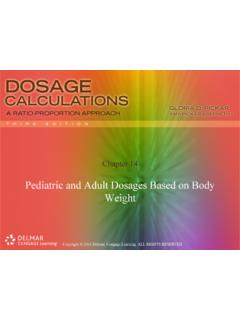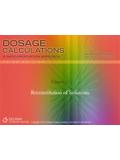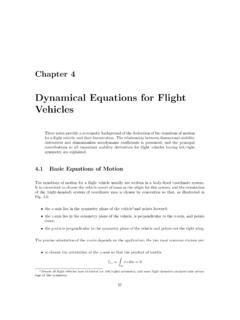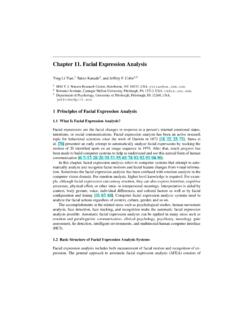Transcription of Health 11 Chapter 2 Psychosocial-PDF - Los Angeles Harbor ...
1 PowerPoint Lecture Outlines prepared by Dr. Lana Zinger, QCC CUNY. 2. psychosocial Health Copyright 2011 Pearson Education, Inc. What Is psychosocial Health ? ! psychosocial Health encompasses the mental, emotional, social, and spiritual dimensions of what it means to be healthy. psychosocial Health is the result of complex interaction between a person's history and his or her thoughts about and interpretations of the past and what the past means to Copyright 2011 Pearson Education, Inc. What Is psychosocial Health ? ! Psychosocially healthy people Feel good about themselves Feel comfortable with other people Control tension and anxiety Are able to meet the demands of life Curb hate and guilt Maintain a positive outlook Value diversity Appreciate and respect nature Enrich the lives of others Copyright 2011 Pearson Education, Inc.
2 Characteristics of Psychosocially Healthy and Unhealthy People Copyright 2011 Pearson Education, Inc. Maslow's Hierarchy of Needs Copyright 2011 Pearson Education, Inc. What Is psychosocial Health ? ! Mental Health : The Thinking You Thinking or rational part of psychosocial Health Mentally healthy people tend to respond to life's challenges constructively. Irrational thinking may indicate poor mental Health . Copyright 2011 Pearson Education, Inc. What Is psychosocial Health ? Emotional Health : The Feeling You The feeling or subjective side of psychosocial Health that includes emotional reactions to life Emotions are intensified feelings and complex patterns: Love, hate, frustration, anxiety, and joy Copyright 2011 Pearson Education, Inc.
3 What Is psychosocial Health ? ! Social Health : Interactions with Others Aspect of psychosocial Health that includes interactions with others, ability to use social supports, and ability to adapt to various situations Social bonds Social support Copyright 2011 Pearson Education, Inc. What Is psychosocial Health ? ! Spiritual Health : An Inner Quest for Well-Being A belief in a unifying force that gives purpose or meaning to life A sense of belonging A feeling of connection to other people, to nature, or a god or other higher power Copyright 2011 Pearson Education, Inc. Factors Influencing psychosocial Health ! The Family Dysfunctional families Children raised in dysfunctional families may have a harder time adapting to life and run an increased risk of psychosocial problems.
4 ! The Macro Environment Drugs, neighborhood, crime, threats to safety, injury, school failure, unemployment, financial problems, and natural disasters also play a role in increased risk of psychosocial problems. Copyright 2011 Pearson Education, Inc. Factors Influencing psychosocial Health ! Self-Efficacy and Self-Esteem ! Self-Efficacy Belief in one's ability to perform a task successfully ! Self-Esteem Sense of self-respect or self-worth Copyright 2011 Pearson Education, Inc. Factors Influencing psychosocial Health Copyright 2011 Pearson Education, Inc. Factors Influencing psychosocial Health ! Learned Helplessness vs. Optimism ! Learned helplessness (Seligman) -victim Giving up because of repeated past failure !
5 Learned optimism Teaching oneself to be optimistic Positive affirmations . Copyright 2011 Pearson Education, Inc. Factors Influencing psychosocial Health ! Personality In general, people who possess the following personality trait healthy: Extroversion Agreeableness Openness to experience Emotional stability Conscientiousness Resiliency Copyright 2011 Pearson Education, Inc. Factors Influencing psychosocial Health ! Life Span and Maturity Our temperaments change as we move through life. The college years mark a critical transition period for young adults as they move away from their families and establish themselves as adults. Those who do not accomplish developmental tasks, such as learning how to solve problems and evaluate decisions, may find their lives interrupted by recurrent crises later on.
6 Copyright 2011 Pearson Education, Inc. Strategies to Enhance psychosocial Health Find a support group. Complete required tasks. Form realistic expectations. Make time for yourself. Maintain physical Health through exercise. Examine problems and seek help if needed. Get adequate sleep. ! ! Can you think of ways to enhance psychosocial Health ? Copyright 2011 Pearson Education, Inc. The Mind body Connection ! At the core of the mind body connection is the study of psychoneuroimmunology (PNI), or how the brain and behavior affect the body 's immune system. ! ! Happiness and Health Happiness and Health have a profound effect on the body . Neurotransmitters function more efficiently in happy people.
7 ! ! Does Laughter Enhance Health ? Stressed people become less depressed with humor. Students who use humor as a coping mechanism experience positive mood. Copyright 2011 Pearson Education, Inc. The Mind- body Connection ! Subjective Well-Being (SWB). Uplifting feeling of inner peace Overall feel-good state ! ! Three Components of SWB. Satisfaction with present life Relative presence of positive emotions Relative absence of negative emotions Copyright 2011 Pearson Education, Inc. ABC News Video: The Study of Happy Brains | The Study of Happy Brains Discussion Questions 1. Do you agree that life experiences only account for 10 percent of one's total happiness?
8 Why or why not? 2. What do you do to make yourself happy? 3. In what ways can you work to increase your happiness level every day? Copyright 2011 Pearson Education, Inc. When psychosocial Health Deteriorates Stress, anxiety, traumatic events, abusive relationships, chemical imbalances, drug interactions, loneliness, financial upheavals, and physical problems can cause an individual to turn inward or to act in ways that are outside what might be considered normal. ! Mental Illness Disorders disrupting thinking, feeling, moods, and behaviors can cause some level of impaired functioning. Caused by life events or by biochemical or brain dysfunction.
9 About 1 in every 4 people over age 18 annually. Mental illness is the leading cause of disability for people in the United States and Canada aged 15 to 44. Copyright 2011 Pearson Education, Inc. When psychosocial Health Deteriorates ! Mental Health Threats to College Students Mental Health concerns range in severity among today's students. ! ! ! These include difficulties in relationships, anxiety, depression, sexual assaults, pressures to take drugs, pressures to succeed, and social and environmental problems. Copyright 2011 Pearson Education, Inc. Mental Health Concerns of American College Students, Past 12 Months Copyright 2011 Pearson Education, Inc.
10 Mental Health Disorders ! Major Mental Health Disorders Affect how you feel, such as persistent sadness or feelings of euphoria Major depression disorder Schizophrenia Bipolar disorder Anxiety disorders-panic disorder, social phobias, OCD,and generalized anxiety Substance abuse ! ! In any given year, approximately 10 percent of Americans aged 18 or older suffer from a mood disorder Copyright 2011 Pearson Education, Inc. Depression ! Depression Disorders Common cold of psychological disturbances Approximately million Americans experience depression each year. Combination of symptoms that interfere with work, study, sleep, eating, relationships, and enjoyment of life Copyright 2011 Pearson Education, Inc.







